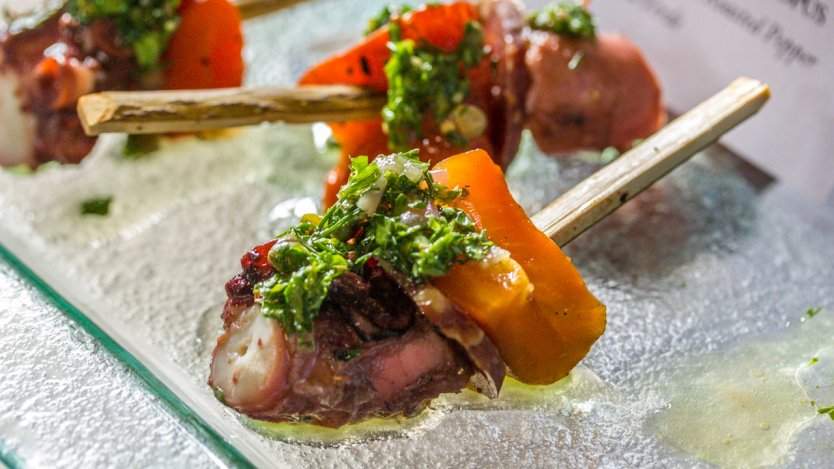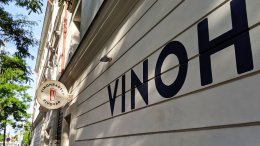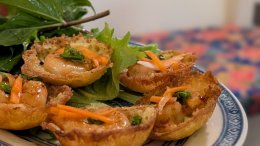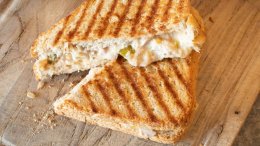Some say humans can trace their evolutionary start back to the oceans, clawing our way out of the sludge some millions of years ago and putting our fins onto terra firma. Then, we settled next to the life-giving oceans and water ways, and began to harvest the teeming abyss for the food which helped sustain us.
Even now, many cultures all around the world still rely on fishing as a source of food and more often their lively hood. The coastal Indonesian fisherman still paddles out to catch a fish at a time, just enough to feed his family and sell at the markets. Azorean fisherman will harvest all kinds of shell fish from cockles to oysters to feed their villages and serve the odd tourist the most amazing spread.
As we evolve through the millennia and find better and more effective ways to fish, we also extract more and more of the strong, hearty species from the ocean. Once, the average tuna was about a thousand pounds. Because we have harvested the strongest, largest of each species and we have harvested them so often, we are left with tuna just less than half their original size.
Theodora Geach, coordinator of the Ocean Wise program at the Vancouver Aquarium, provides an alarming statistic: “We have already depleted over 90 per cent of large, predatory fish. We must take immediate action to change our behaviours to ensure that fish stocks are available now, and for generations to come.”
As the demands on the ocean increase along with our populations (and its wealth), the oceans are quickly being eaten bare. The top, and often tastiest species, are harvested to the point of extinction, making re-population a long and arduous process. Their low numbers also mean that prey fish and other parts of the ocean food chain are disrupted and go through repeated cycles of either overpopulation and/or starvation, creating havoc in the ecosystem.
The Ocean Wise program, created by the Vancouver Aquarium, aims to help make the oceans sustainable. Unlike PETA, who picket and scream bloody murder at people who enjoy their seafood, it's an impactful program educating consumers, chefs and the public on the current state of the ocean and how to choose seafood that can be sustainable to the ocean ecosystem.
Their curriculum of educational programs aimed at consumers, producers and restaurants raise the level of knowledge and awareness in regards to ocean conservation. They also help identify fishing practices and suppliers who utilize sustainable fishing efforts to ensure that the entire ocean-to-table supply chain adheres to sustainable practices.
The word “sustainable” is often thrown about as the intelligent thing to say when you’re talking about a cause. But in the case of Ocean Wise, sustainability has been clearly defined into four criteria:
Firstly, it is selecting fish which are abundant and resilient to fishing pressures. Most bluefin tuna are considered “at risk” or endangered, with over 75% of their population depleted. Since it takes 8-15 years for a bluefin to mature and often 40 or 50 years to reach a very large size, they are not sustainable fish. Albacore tuna on the other hand, matures quickly and begins spawning in about 3-5 years depending on the specific species.
Secondly, the stocks must be managed based on scientific research. Once a species is depleted past a certain point, it is extremely intensive, if not impossible to repopulate. To prevent that, fishing must be monitored and controlled to ensure that species never reach that point.
Thirdly, it must be harvested in way to limit bycatch. Imagine bycatch as the ugly friend of the hot woman you picked up at the bar, who gives you a dirty look because she was kept up all night on the couch while you loudly shag her friend in the bedroom. It’s all the extra stuff which gets in your way while fishing.
Lastly, it must be harvested in ways which limit damage to the ocean habitat. You may have seen pictures of shrimping boats that drop their nets and drag them along the bottom of the sea, but keeping only the shrimp. It’s much like buying a bag of M&M’s, picking out the red ones and throwing the rest away.
As a nation which depends on fishing and has some of the greatest fishing grounds in the Grand Banks, Canada is naturally invested to preserve the state of the oceans. Over 3,100 partners in Canada have dedicated themselves to harvesting, producing, wholesaling or serving seafood which meets the four criteria of sustainability.
Many restaurants will display the Ocean Wise symbol next to a dish which incorporates Ocean Wise ingredients. The Ocean Wise website (www.oceanwise.ca) also has a list of the most common seafood and whether one should be eating it, or should choose another more sustainable option.
Often, things which are out of sight are out of mind. We don’t live under the sea nor do we see schools of fish swimming around, so we make the mistake of assuming fish are an endless resource. The Vancouver Aquarium is giving us a chance to make the world under the surface visible and allowing us to understand and manage the ocean in much the same way as we manage the plants and animals on land.
If we don’t start managing how we harvest the oceans, we will very quickly run short of all the tasty items we enjoy: sushi, fish and chips, and ceviche just to name a few. After all, this will mean no date night at your favourite Japanese restaurant, no drinks with friends at your English Pub, no wine and tapas at the Spanish restaurant on the corner, and that to me, most certainly means no fun.













